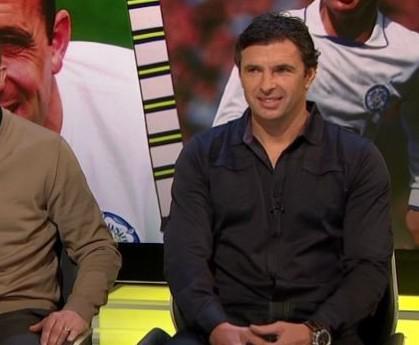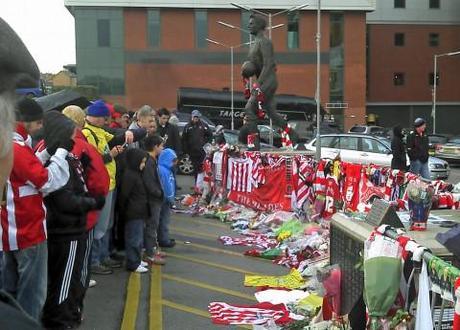
Gary Speed appearing on BBC Football Focus on 26 November 2011: His final appearance
Gary Speed, the former Leeds and Sheffield United star, and successful Wales manager, who was found hanged on 27 November 2011, may have accidentally killed himself, an inquest has found. His death led sports commentators to ask whether being an elite sportsman increased one’s risk of suicide. The circumstances of his hanging, however, remain a mystery.
“For the many who admired Speed, his death remains completely incomprehensible. This was someone seemingly embarked on a transcendent managerial career, a hero, a man whose life appeared, to most of us, enviable,” commented Jim White on The Daily Telegraph.
Coroner Nicholas Rheinberg, at Warrington Crown Court, reported The Yorkshire Post, said in a narrative verdict that there was not enough evidence to show whether Speed’s death was purposeful. It found that Speed had texted his wife four days before his death, and had mentioned taking his own life; and that the night before he was found, he had had an argument with her after they left a party where he had been enjoying himself.

Fans gather to remember Gary Speed. Photo credit: Rich Jacques, http://www.flickr.com/photos/richjay/6451625685/
Speed’s wife, Louise, described how she had gone for a drive to “clear her head” after the argument, which she said was “about something or nothing.” She then went back to the house – only to find she’d been locked out. She spent the night in her car, and at around 6.30 am, on trying to re-enter the house, she saw Speed through the garage window, “hanging lifeless from the banister.” Rheinberg said that it was possible Speed had “nodded off” whilst sitting with an aerial cable round his neck. There was a “wet patch” on the garage steps that suggested he’d been sitting there for “some time”, leading the coroner to conclude that he could have fallen asleep. The inquest also found that Speed left behind no suicide note. Whilst Louise Speed said that the stresses of Speed’s job as Wales manager were putting a strain upon their marriage, they were “working through“ their issues.
“Thankfully, out of tragedy some good often emerges, and we feel blessed to have such true friends who are helping each of us come to terms with the circumstances of our bereavement,” said Speed’s family’s statement, quoted on The Metro.
It’s incomprehensible. Speed had “so much to live for,” said Jim White on The Daily Telegraph. He was “apparently secure” in his profession, and “surrounded by those who loved and admired him.” The atmosphere in the inquest chamber was “sombre”. Written testimony from friends was read out by the coroner: footballer Alan Shearer, who said that he couldn’t imagine Speed doing such a thing; Speed’s mother, Carol, who said that her son was a “glass half-empty person.” There was no hint in his computer or on his phone; he had no ‘history of depression”; he was only “marginally above the legal driving limit.” But all the same, we’re left “where we were before the inquest: without rational explanation.”

